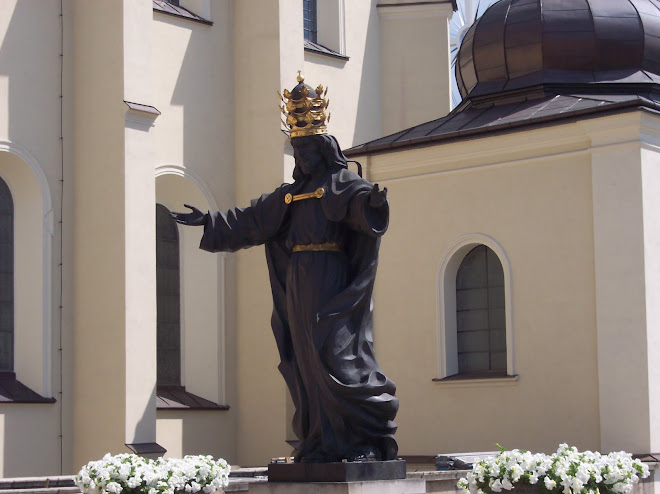Are Abraham, Moses, Elijah, Elisha, and any other Old Testament figures, Saints, not in the sense of having been formally canonised, but because they were people of sanctity?
If not, why not?
If so, is it permissible for a Catholic to pray to them?
Perhaps the question is foolish, if you doubt that they ever existed or did what they are recorded as doing. I am happy to accept them as historical fact.
Certainly it is grounded in ignorance, a deficiency to which I happily admit.
Does anyone have any knowledge, ideas, or thoughts about this?
Hatred Explained
-
So, what is emerging one week after Charlie Kirk’s brutal assassination?
The assassin was the “boyfriend” of a male who fancies himself a woman.
That is, h...
5 hours ago







































3 comments:
They are considered saints. Here's the Catholic Answer answer: http://www.catholic.com/quickquestions/is-it-ok-to-pray-to-old-testament-heroes-the-same-way-we-pray-to-christian-saints
Lisa - thank you!
The link you kindly provided gives the following:
'The Catechism of the Catholic Church tells us, "The patriarchs, prophets, and certain other Old Testament figures have been and always will be honored as saints in all the Church’s liturgical traditions" (CCC 61). Statues of such Old Testament figures as Moses, David, and Elijah can be found in some Catholic churches, a reminder to ask the intercessions of these saints.
"Many Old Testament saints offer compelling examples of faith, perseverance, and heroic virtue and are as worthy of our devotion and prayers as the angels named in the Old Testament—Michael, Gabriel, and Raphael.
"A prayer called the Litany to Old Testament Saints can be found online; it includes invocations of holy patriarchs, kings, women, prophets, and martyrs, both as individuals (e.g., Abraham, David, Sarah, Elijah, Abel) and as groups.
"Of course, whether praying to Old Testament saints or Christian saints, we are always asking their intercession, not praying to them as we do to God."'
God bless!
Absolutely!!! They are in Heaven so they are Saints! Even though they came before Christ and were not formally canonized in the manner we know.
Post a Comment